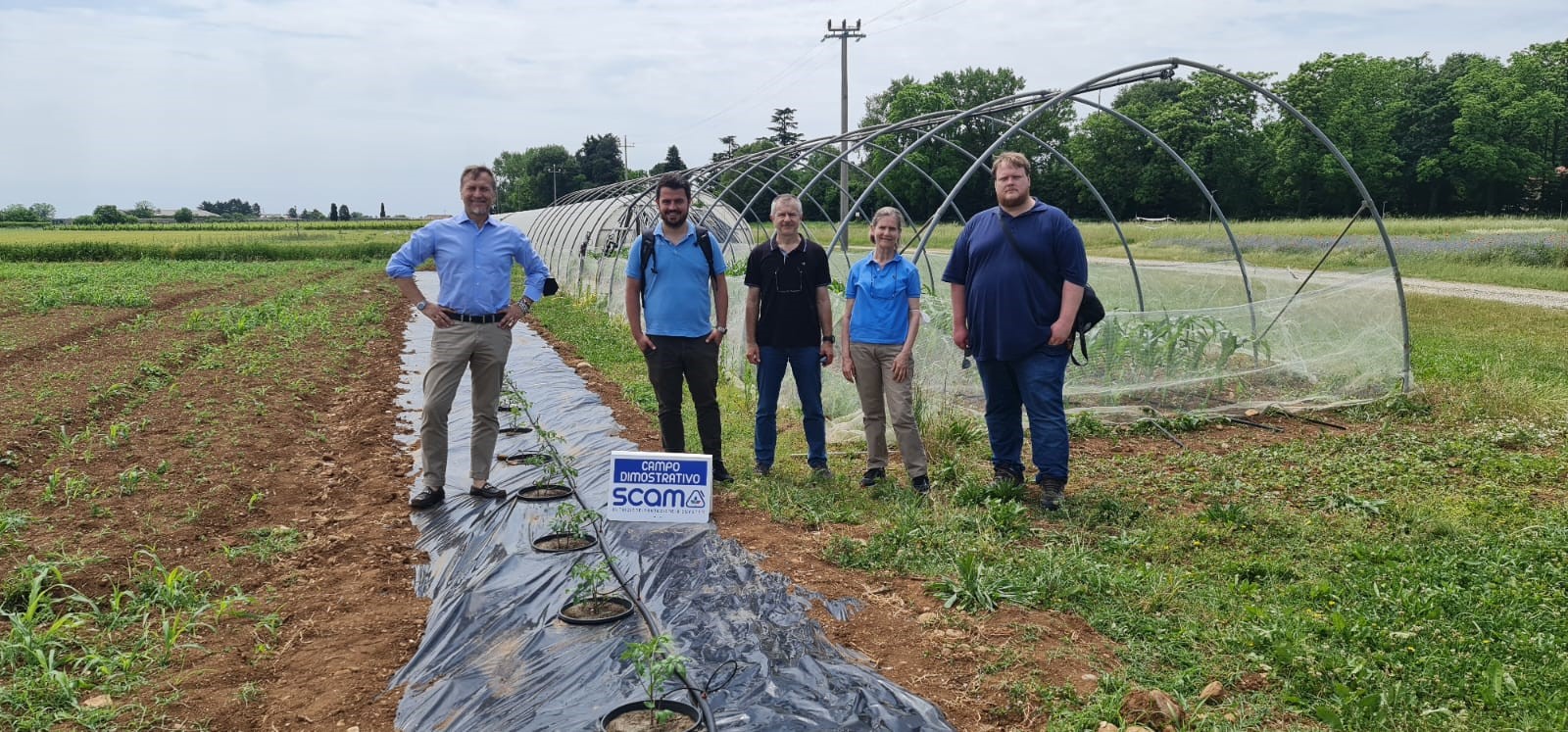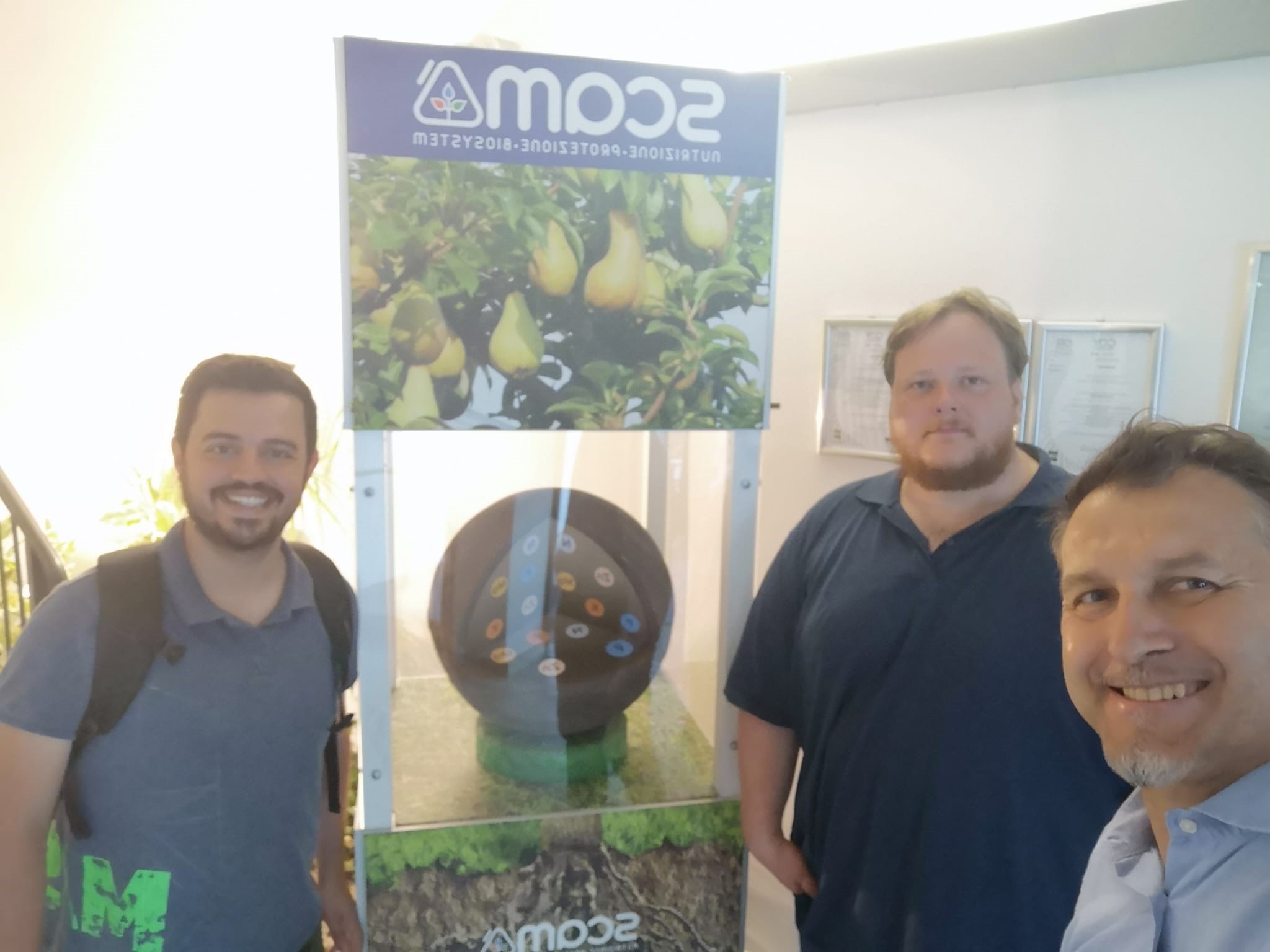Pietro Sica and Tomas Sitzmann completed a one-week internship in SCAM SpA, a FertiCycle partner
By Tomas Sitzmann (ESR 4) and Pietro Sica (ESR 10)
About SCAM SpA
SCAM SpA is a pioneer and Italian market leader in the production of humidified-peat organo-mineral fertilizers (OMF) for the European market and is located in Modena, Italy. Stefano Tagliavini (Fertilizer Development and Communication) is the link between the company and FertiCycle and was responsible to guide the ESRs during the internship.
 The objective:
The objective:
Pietro and Tomas are working on formulating new fertilizers during their PhD and the main objective of the internship was to learn about industrial-scale fertilizer production and the formulation, tests, and market development of new fertilizers.
Activities:
The week was full of activities and very productive for both ESRs. In the visit to the industrial plant, Pietro and Tomas got an overview of the whole production process, from the reception of the raw materials to the delivery of the final products, including a pilot plant where SCAM develops new prototypes.
Quality assurance is also essential for the commercialization of the fertilizers. So, the ESRs visited the quality control lab (physical and chemical properties) and discussed with the lab team the similarities and differences of the quality analysis performed in the company and the routine analysis carried out at their universities.
Scientific studies and field demonstrations for farmers are essential for the market development of new fertilizers. Stefano took Tomas and Pietro to the University of Udine (Northeast of Italy) to visit a semi-field trial of new fertilizers where they are not only assessing the agronomic performance but also the environmental impact of their new products. In the last day, the ESRs went to a Farmers Open Field Day in Ravenna, where SCAM and other companies have trials to demonstrate to farmers the performance of their new products.
 Other collaborations
Other collaborations
Previously, SCAM collaborated with Tomas in the production of novel OMFs based in bio wasted materials. Therefore, the visit was also used to contrast the new OMFs with the requirements of commercial fertilizers and the next steps to validate their efficiency in trials looking at agronomical and environmental aspects of their use.
Outcome
The experience obtained during the whole internship is helpful for the ESRs, helping them to understand necessities, limitations and opportunities in the private sector of the bio-based fertilizers, and how to transform this knowledge in useful collaborations with research institutions.
